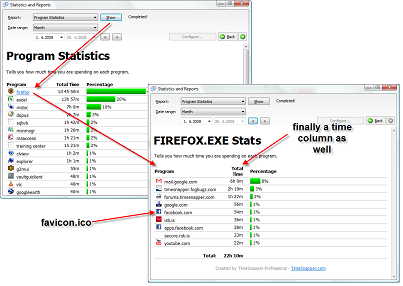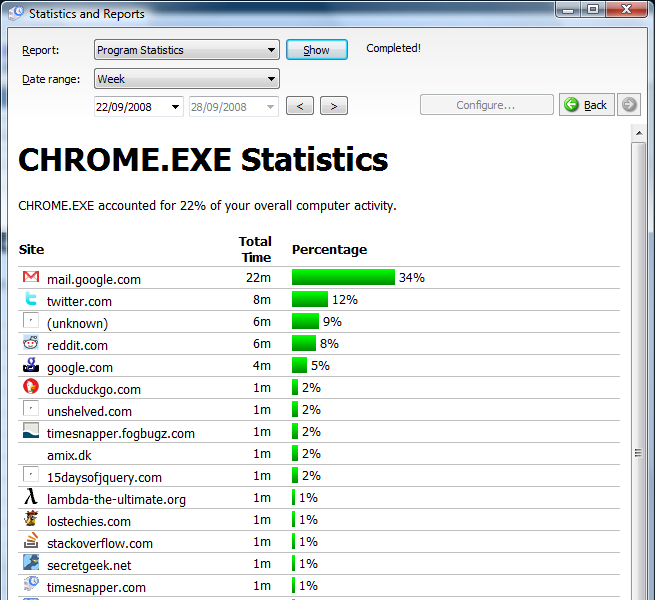TimeSnapper 3.2: What are you afraid of?

We've just put out TimeSnapper 3.2 to help analyse your online life.
TimeSnapper has always helped you understand (and replay) the time you spend with local applications, but we've never performed deep analysis of the time within any particular program.
But because browsers are worlds unto themselves, we now give them special attention and give you more details (via reports) about what sites are capturing your attention.
Internet Explorer, Firefox and Google Chrome are watched carefully, so you can get a clearer picture of where all your time really went. (Sorry Opera and Safari, it's sad trombone time for you.)
As usual, a whole bunch of improvements made it out along with the main new feature. Check the release notes for details.
Oh and we've reduced the price again. Instead of the usual $39.95, we've dragged it down to $24.95. This is a happier price I think.

People responded very positively to our other price drops, and this is perhaps a more sustainable price. We're not getting rich off it, I promise you, but we are getting enough sales to keep our interest piqued, and ensure that we keep improving the software.
What are you afraid of?
Something I'd like to know more about... what can we do to make TimeSnapper less terrifying?
A certain proportion of people, when they hear about TimeSnapper, or they see it in action, have this strange response, along the lines of:
"I'd rather not know how much time I'm wasting."
My analysis of this attitude goes something like this:
- You feel you are wasting a lot of time.
- You are not happy about how much time you're wasting.
- You believe you're completely powerless to change.
If that's true, then having more information will indeed only make you less happy. The tired old addage, "Ignorance is bliss" applies.
I strongly disagree with this sentiment, but I don't know the right way to persuade these people that information is a powerful motivator.
We could give one free psychiatric consultation with every copy purchased... but that might cost a bit much.
Otherwise I think we're doomed to give up on a certain slice of humanity: the very people most likely to benefit from our software.
What are your thoughts? Would you "rather not know how much time you're wasting"? And if so, what could someone say to help you?
Next → ← PreviousMy book "Choose Your First Product" is available now.
It gives you 4 easy steps to find and validate a humble product idea.